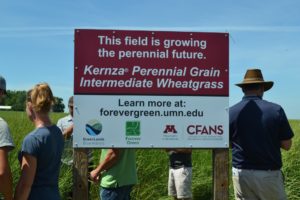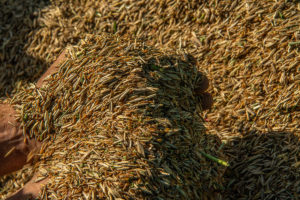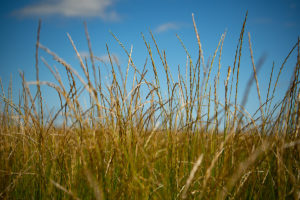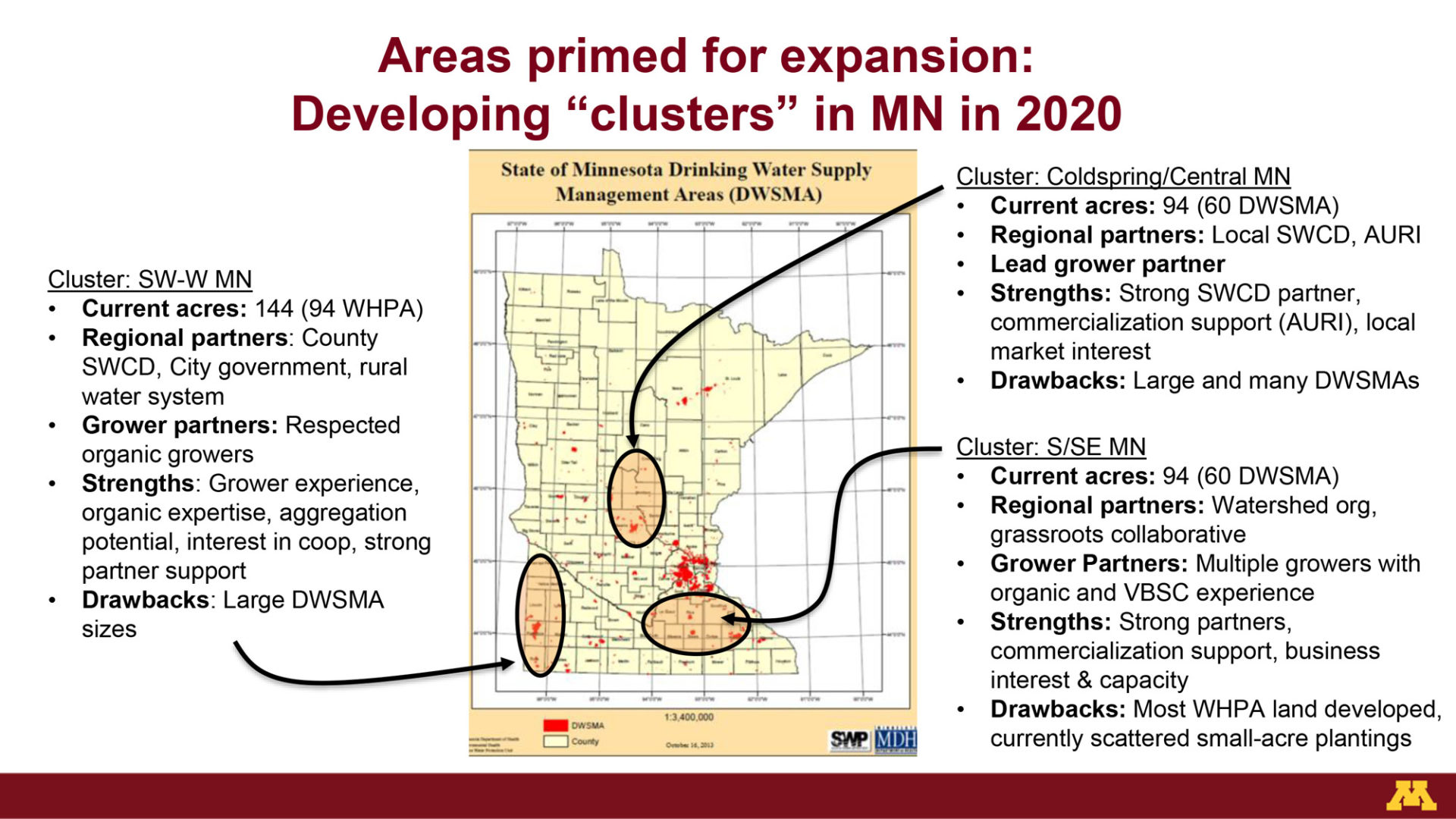Perennial Progress at University of Minnesota

The University of Minnesota (UMN) Forever Green Initiative (FGI) achieved a milestone in 2019 with the release of the first official KernzaⓇ variety, named MN-Clearwater. UMN FGI is pleased to be an international leader along with The Land Institute and others in KernzaⓇ research and early commercialization efforts.
Continuing progress, on February 13, 2020, FGI announced the 2020 MN-Clearwater seed release. As in 2019, UMN will directly license MN-Clearwater to qualifying growers. In keeping with FGI’s goal to offer new economic and environmental benefits to MN farmers and rural communities, this initial release is targeted at and prioritizes Minnesota growers.
Currently, there are about 400 acres of KernzaⓇ seed planted across Minnesota, with acreage mostly clustered in three areas (see image). The Forever Green Initiative strategy for KernzaⓇ variety development is focused on building out “clusters” of production and engaging growers, communities and commercial stakeholders in leading and participating in the development of KernzaⓇ acres, supply chains and markets. There is estimated to be about 20,000 lbs of MN-Clearwater available for the 2020 planting, which translates to about 1500 new acres of the new KernzaⓇ variety.

A series of grower conference calls has been underway to connect interested growers with University expertise and experienced growers to answer questions about planting, production, harvest and markets. Tessa Peters from The Land Institute has been active in these calls, providing a national and global perspective on KernzaⓇ commercialization progress.
Efforts to target Minnesota growers and develop clusters is supported through funding made available in 2019 through the Minnesota Clean Water Fund. The Minnesota Legislature appropriated $4.3 million for The Forever Green Initiative, with $500,000 of that funding to be used for planting and implementation of Forever Green crops in Minnesota. The implementation funding will focus specifically on increasing acres of KernzaⓇ seed plantings, with an emphasis on citing acres in well-head protection and vulnerable drinking water areas. Since 2017, The Forever Green Initiative has actively partnered with state agencies, NGOs and Rural Water authorities to research the effect of KernzaⓇ plantings on nitrate leaching in drinking water sources. The early results of that research show a dramatic reduction in nitrate leaching, which has caught the attention and interest of communities and government leadership across Minnesota. Funding from the Clean Water Fund will continue this work and build out the opportunity for other Minnesota communities to protect and even restore their public water resources.

In addition to the water source management, the implementation funding will support the pilot of a grower payment program for KernzaⓇ growers. The payment program has been developed to test a method to both mitigate grower risk and incentivize growers to plant KernzaⓇ to expand on the ecosystem services. “We recognize that growing KernzaⓇ [varieties] is still a risk for growers,” explains Colin Cureton, FGI Supply Chain Specialist. “We envision this pilot implementation program as an opportunity to reduce the risk to the grower, increase KernzaⓇ acreage and continue to deliver on the promise of Forever Green to provide new economic and ecological opportunities for producers and communities.”
Vetting of Minnesota growers will continue through the next few months in anticipation of the August planting season. More details on the Forever Green Initiative, the Implementation program and MN-Clearwater grower licensing terms are available on the Forever Green website.
